G20 Entrepreneurship Roundtable was held at Tsinghua University School of Economics and Management (Tsinghua SEM) on December 14, 2017.
Director-General Hao Bin and Deputy Director-General Qian Xiaoyan of the Department of International Cooperation of the Ministry of Human Resources and Social Security, Professor GaoJian who serves as the Director of the Entrepreneurship Research Centre on G20 Economies and also the Senior Associate Dean of Tsinghua SEM Committee attended the roundtable. Among the distinguished speakers and guests are officials from G20 member countries’ embassies in China, senior representatives of relevant international organizations in China, officials from related Chinese government departments, scholars and experts in entrepreneurship, and entrepreneur representatives. Professor Mo Rong, Vice President of the Chinese Academy of Labor and Social Security, and Professor Cheng Yuan of Tsinghua SEM also attended the roundtable.
The Roundtable was conducted in four sessions on the themes of entrepreneurship education, entrepreneurship finance, sustainable development of entrepreneurship, and entrepreneurship & social security that were respectively chaired by Director-General Hao Bin, Professor Gao Jian, Deputy Director-General Qian Xiaoyan and Professor Cheng Yuan.
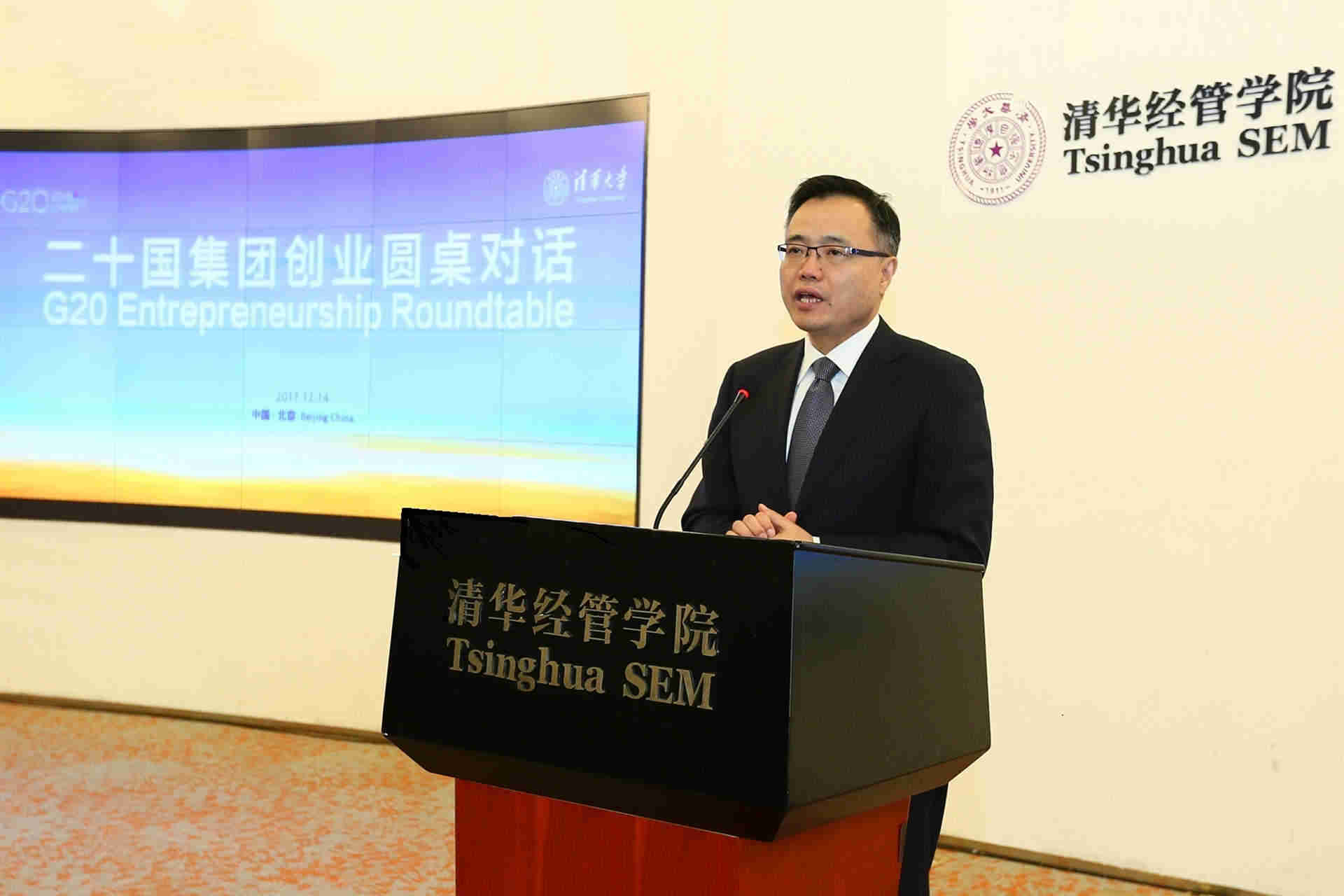
In his opening speech, Director-General Hao Bin said that G20 Entrepreneurship Roundtable is a major event organized by the Entrepreneurship Research Centre on G20 Economies in a bid to facilitate the joint implementation of the G20 Entrepreneurship Action Plan. He invited each member to recommend an entrepreneurship research institute as a liaison unit and create a platform to share experience and research findings on entrepreneurship. Chinese government and relevant cooperation organizations have achieved preliminary success by adopting a series of measures on entrepreneurship, with the focus on nurturing new engines for mass entrepreneurship and innovation. To start and develop an enterprise, a wide range of assistances and services are needed. Under such circumstances, stimulating the vitality of entrepreneurship forum for the sharing and exchanges of technology and policy research achievements constitutes an important channel to promote the research on the entrepreneurs’ needs and fulfill the mission of the Entrepreneurship Research Centre on G20 Economies.
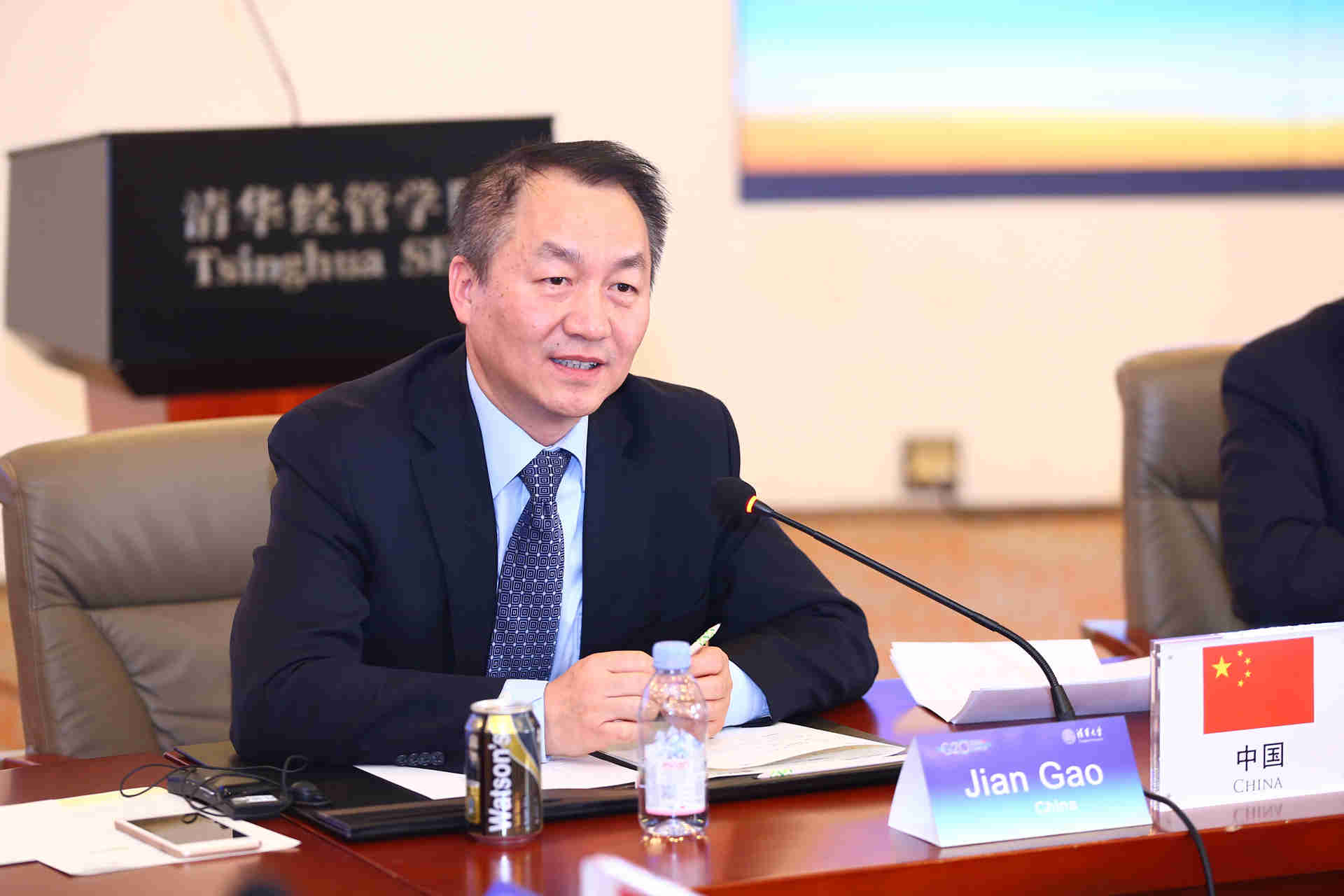
Professor Gao Jian said in his speech that the G20 Entrepreneurship Roundtable is aimed at exploring ways to advance the implementation of the G20 Entrepreneurship Action Plan jointly by G20 members and fostering the entrepreneurship development by means of connectivity, exchanges and mutual assistance. China boasts a huge entrepreneurial foundation and a wealth of entrepreneurial practices. The constantly changing entrepreneurial environment and overall economic development demands require new explorations of entrepreneurial research. By virtue of the G20 platform, the research center will step up efforts in an all-round way and provide support for the establishment of effective mechanisms to promote entrepreneurship in various countries.
The first session of the roundtable discussion themed “Enhancing Entrepreneurship Education and Training” covers three topics: “innovative pattern for entrepreneurship education”, “new technologies for entrepreneurship education and training” and “subsidies for entrepreneurship education and training”.
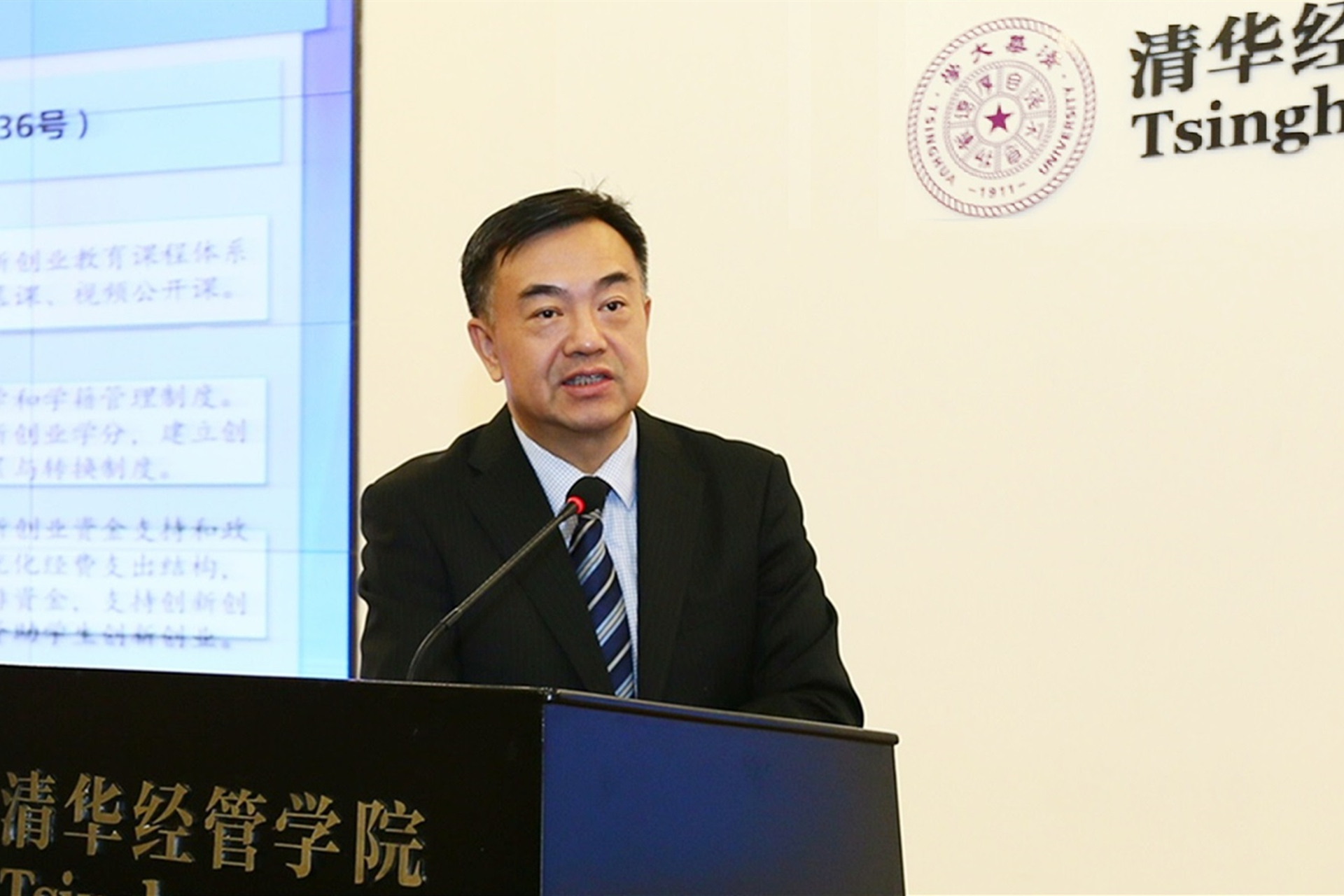
The session began with Professor Mo Rong’s presentation on the theme of “the status-quo and countermeasures of entrepreneurship education and training in China”. He introduced and analyzed the entrepreneurship education and training policies under the guidance of the Document No. 36 issued by General Office of the State Council and Guiding Opinions on Entrepreneurship Training issued by the Ministry of Human Resources and Social Security in 2015. Professor Mo noted that about 40% of Chinese young people have received entrepreneurship education, among which 60% were organized by the government. He also proposed countermeasures and suggestions on how to improve the training quality.
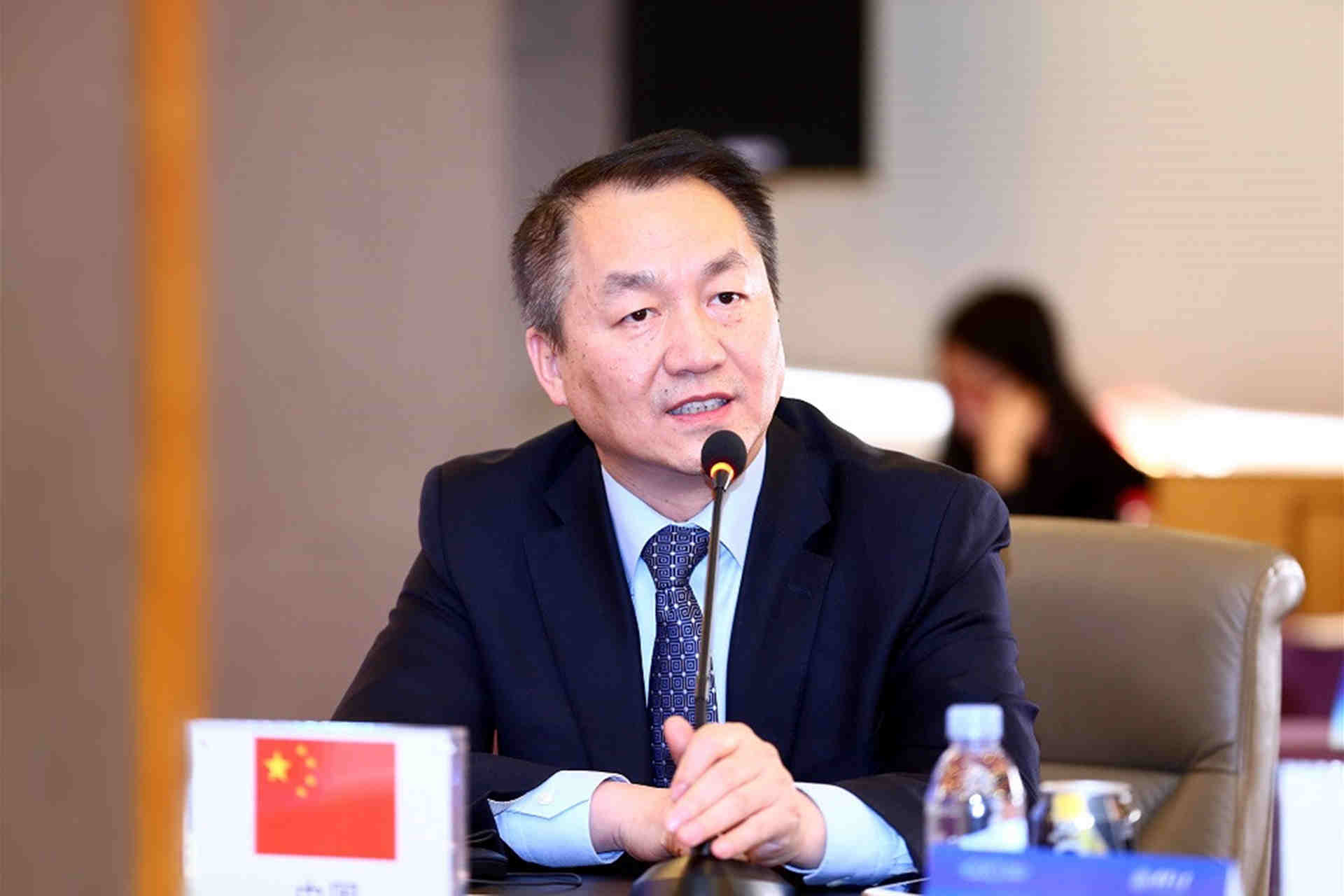
Professor Gao Jian, Director of the Entrepreneurship Research Centre on G20 Economies, talked about the latest development of entrepreneurship education in China.He introduced the channel “Chinese Institute of Entrepreneurship” on XuetangX, a massive open online courses (MOOC) platform and made in-depth analysis of new education platform represented by “Tsinghua X-Lab”, featuring interdisciplinary, experiential and globalized courses and effective integration of online and offline resources. Over the past five years, some 1,200 teams have joined the “Tsinghua X-Lab” platform. By now, the platform has channeled an investment of 2.5 billion Yuan to start-ups, demonstrating the inherent potential of such new model.
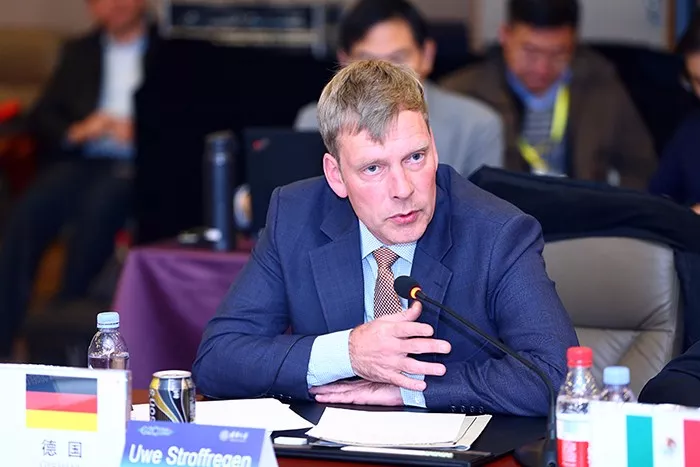
Mr. Uwe Stoffregen, the official in charge of social and labor affairs, title at German Embassy in China, shared German’s entrepreneurial experience in strengthening the training of workers and helping the skilled workers adapt to new environment and new situation. He pointed out that the advent of automation and digitization requires us to improve skills and philosophy in vocational education. An important lesson is to further promote the development of the vocational education system, ensure that highly skilled workers could constantly improve their skills and qualifications, and cooperate with universities. In Germany, most of the workers receive vocational training at vocational schools, instead of universities. In Germany, people could earn great qualifications within three years for apprenticeship training. After a few years of training at school, they could go to work. Then, worker could earn certifications by on-the-job training. In the meantime, they also have access to opportunities for skill education and trainings at universities.
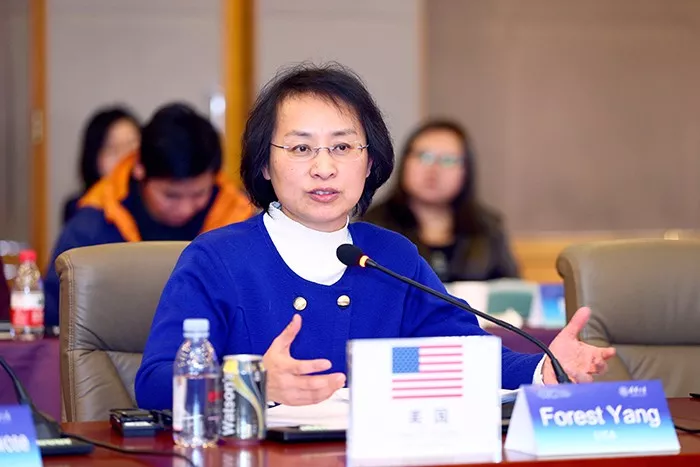
Ms. Forest Yang (from the Economic Section) , title of the US Embassy in China shared the experience in entrepreneurship, small business development and female entrepreneurship in the US. Small businesses constitute an important engine of the economic development in the US and create 50% of job opportunities, while women account for 35.9% of the small businesses owners. State governments, local governments and private sectors play a leading role in the implementation of the related programs to stimulate the development of small businesses. The California Business Portal program provides not only consultation services, but also quite practical training courses to entrepreneurs. The US has established quite a mature entrepreneurial education industry. Founded in 1955, the United States Association for Small Business Education has been committed to improving the management of small businesses in the country. For example, in the community reconstruction following the natural disasters, the Association fulfilled their duties through activities mainly involving 3C (capital, contract and culture).
The second session of the roundtable discussion on the theme of “Strengthening Entrepreneurship Finance Service” explores three topics:“developing entrepreneurship financing”, “building entrepreneurship incubator” and “setting up entrepreneurship network”.

Ms. Joanna Bunting, Counsellor of Industry, Innovation and Science at the Australian Embassy in China, noted, the Australian Government, similar to governments elsewhere, has recognized the importance of innovation and entrepreneurship in delivering high-skilled jobs and making businesses more productive and competitive. In the Australian context this message has had particular resonance as the country transitions from the resources boom and traditional manufacturing and looks to build increased diversity in the economy. The Australian Government’s National Innovation and Science Agenda (the Agenda) was launched in late 2015. A major theme of the Agenda was ‘Culture and Capital’. This aims to help build a stronger culture of entrepreneurship and to encourage increased investment in innovation.The Agenda included a number of measures to stimulate angel and venture capital investment. These measures are now well-advanced in their implementation.
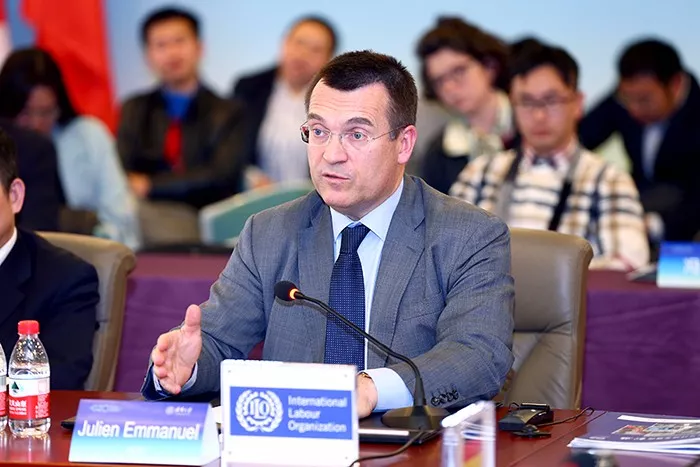
Mr. Emmanuel Julien, Deputy Director of the Enterprises Department of the International Labor Organization (ILO), mentioned that employment and work have been the major concerns of ILO since its establishment in 1919. Today, as the private sector provides 80% of job opportunities, entrepreneurship has become the Organization’s utmost concern. Start and Improve Your Business Program (SIYB) is currently a main service project of the Enterprises Department. It’s a training program established in the 1980s for potential small-scale start-ups. It has developed over 3,000 partners in more than 100 countries, trained some 67,000 personnel and facilitated the employment of 90 million people. In the future, the Enterprises Department will launch tailored SIYB service for women and other special groups, while enhancing exchanges of technology, policy research and knowledge. The enlargement of G20 entrepreneurship discussions is of great significance to such work. The ILO and the Entrepreneurship Research Centre on G20 Economies need more systematic cooperation in the future.

TusStar Chairman ZhangJinsheng introduced TusStar’s experience as an operator of the startup business. Initially registered as TusPark, TusStar has invested over 1,300 projects and incubated 35 listed companies, accumulating a financial revenue of nearly RMB 30 billion Yuan. TusStar has developed the main model “incubation + investment” in combination with the measures of creating network in line with the innovation source, assisting with the commercialization of research findings, and etc. Currently the main objective of TusStar still lies in better helping entrepreneurs in an all-round, cross-chain and multidimensional way and building an innovation network in China and around the world.
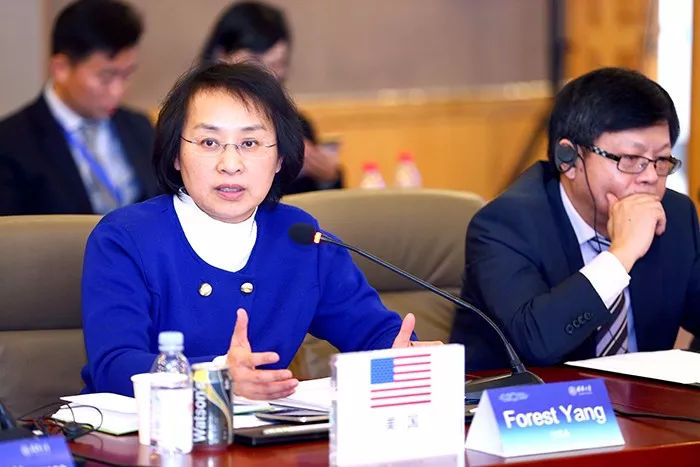
Towards the end of this session, Ms. Forest Yang briefed the - Women Entrepreneurship Finance Initiative and stressed the roundtable’s emphasis on women’s role in entrepreneurship. Women account for 37% of entrepreneurs in the US, as against 30% around the world, which is far from enough. Measures to improve women’s economic participation often have a multiplier effect in economic development. This is not only a precondition for gender equity, but also a prerequisite for economic development, prosperity and competitiveness.
The third session of the roundtable discussion themed “sustainable development of entrepreneurship” focuses on three topics : “reducing barriers to market entry”, “strengthening inclusive growth and sustainable development” and “the role of trade associations and non-governmental organizations in entrepreneurship financing”.
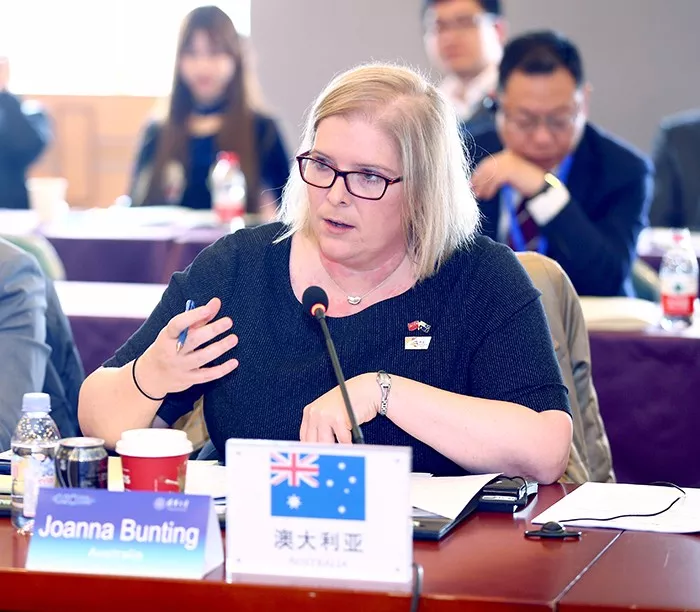
Ms. Joanna Bunting from Australia pointed out thatentrepreneurship is the backbone of any progressive economy, and Australia focuses on growing a sustainable environment that promotes entrepreneurial success.Entrepreneurs that survive and thrive create jobs, introduce new products, and provide the required flexibility for an economy to cope with a changing world.Four out of every five jobs added to the Australian economy has been traditionally created by a small young firm. The focus should be on facilitating the sustainable development of start-ups by providing one-stop service,building information network and helping enterprises tap potential markets in line with the enterprises’ actual needs. At the same time, it is equally important to provide failed enterprises with follow-up services concerning debts.
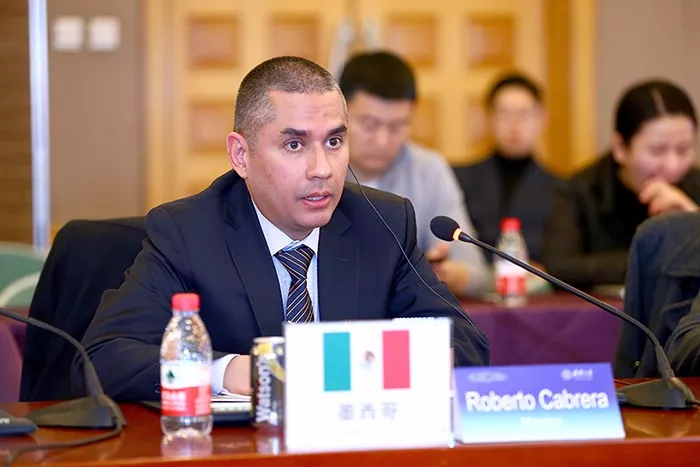
Counselor Roberto Cabrera from the Economic Section of Mexico Embassy in China shared Mexico government’s experience in supporting SMEs.Financing and specialized advice in the correct administration of entrepreneurs is a fundamental part for their startup operations and growth in the first stage. However, when talking about practices to reduce barriers to market access, we should understand that these entrepreneurs already have an export capacity to explore other markets.Governments and their agencies responsible for supporting entrepreneurs should monitor the following key points. Legal studies: carry out market studies but above all legal studies to identify the laws and technical standards that must be taken into account in order to start exports to a specific destination.Intellectual property:intellectual property rights must be protected (geographical indications, patents, etc.) before an entrepreneur begins its exports.Logistics: carry out logistic feasibility studies to comply with international packing and transport regulations, calculate delivery times, and finally, additional costs that must be included in sale prices.Transparency: they must comply with the principle of transparency in international trade (WTO); they must have updated websites for entrepreneurs to consult their laws, technical standards and basic logistical procedures to export products to their market.
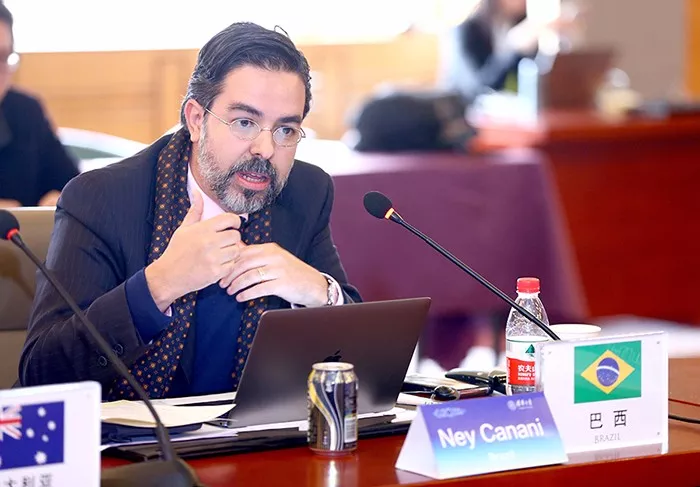
Mr. Ney Canani, the Chief International Advisor of Brazil’s Ministry of Labor, mentioned that the Global Entrepreneurship Monitor Report showed that in Brazil, entrepreneurs make up 19.6% of the total population and 36% of Brazilians had entrepreneurial experience or are undertaking entrepreneurial activities. Entrepreneurship has a significant influence over the economy in Brazil. Therefore, the Brazilian government has made continuous efforts to deepen the reform of public policies on entrepreneurship, covering various aspects like simplifying the examination and approval procedures and taxation system for entrepreneurship, labor reform and setting up the credit fund project for SMEs. For the sake of entrepreneurship education, the government integrated resources from business organizations, national entrepreneurship plans and others, while providing systematic training support for the sustainable development of start-ups by cooperating with more than 3,000 educational institutions that brought together over 5,000 teachers and trained some 2 million students.
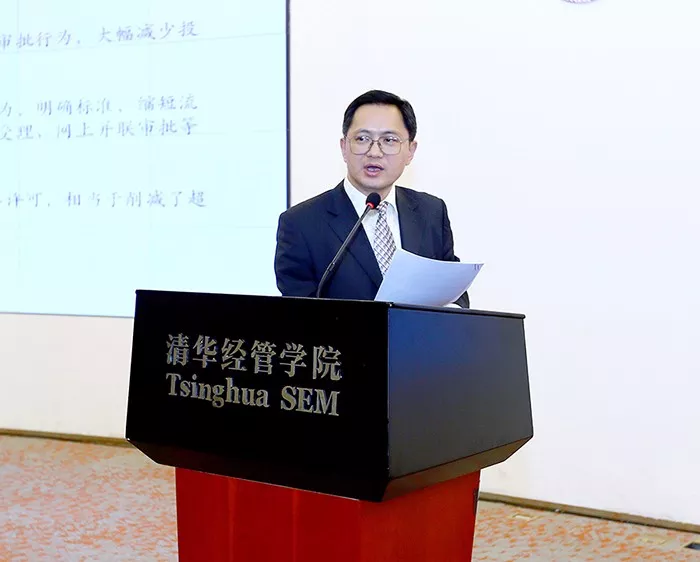
Mr. Li Xiangwei, Director of Entrepreneurship Guidance Office of the Employment Department of the Ministry of Human Resources and Social Security, China, shared the Office’s experience in promoting sustainable development of start-up enterprises. Firstly, optimize the market access environment and remove the entry barriers through a series of measures, including simplifying registration procedures of enterprises and recommending the State Council to cancel over 430 (near 70%) items of professional qualification certification. Secondly, cultivate a public platform for entrepreneurship and innovation. By now, the Office has summarized and promoted various new incubation models, created entrepreneurship incubation bases with the support of various industrial parks, and set up over 70 demonstration bases for entrepreneurship incubation in China.
In terms of entrepreneurship service and training, Departments of Human Resources and Social Security at all levels provide all types of services to more than 3 million people every year, including project development, guidance on starting business, financing service, policy advice, follow-up support, and organization of entrepreneurial activities. The last two "China Maker" Youth Innovation & Entrepreneurship Competition has attracted 16,000 entrepreneurship projects and a large batch of venture capital institutions, while constantly exploring new modes of entrepreneurship training. With respect to entrepreneurship financing, we’ve been innovating various financing channels, including venture capital, angel investment and equity investment. By now, the equity investment in China has reached RMB 10 trillion Yuan. In future, we’ll accelerate the establishment of national SME development fund and national emerging industries venture capital guiding fund to make full use of the multi-layered capital market, including Growth Enterprise Market (GEM) and regional equity investment markets. On the other hand, China is stepping up to promote policy on entrepreneurship guarantee loan. In 2016, the total loan guarantee amounted to RMB 101.5 billion Yuan, with 80% for individual entrepreneurs and nearly 20% for small and micro enterprises, as against the gross interest subsidies of RMB 8.3 billion Yuan in 2016.
In addition, the labor condition and social security of enterprises and their employees have been strengthened through such measures as tax reduction and exemption for start-ups, subsidies on social security and training, and lower social insurance premium rate for small and micro enterprises, which have achieved remarkable results. Newly registered enterprises have maintained a growth rate of over 20% since 2013. Last year, about 15,000 new enterprises are registered on a daily basis, up by 300 than the previous year.

Mr. Emmanuel Julien, Deputy Director of the Enterprises Department of the ILO, introduced the positive role of civil societies and business organizations in promoting business management and supporting entrepreneurship. He demonstrated the achievements in diversified cooperation between international organizations, business federations and local governments through ILO’s specific work cases. For example, over the past two years, the ILO finished the occupational safety assessment in 17 countries. Moreover, at the request of the enterprises and with the support of chambers of commerce, ILO encouraged the Ghana's government to initiate the legislation on higher occupational health and safety standards.
The fourth session of the roundtable discussion on the theme of “entrepreneurship & social security” explores two sub-topics of "entrepreneurs’ obligations as employers" and "including entrepreneurs and their employees in the social security system".

Mr. Ruben Beltran Palafox, Director of the Economic Cooperation Department of the Ministry of Foreign Affairs of Mexico, introduced the Mexican Entrepreneurship Institution established in 2004.Supporting entrepreneurship has become a national priority since the early 1990s to reduce informal economy and to increase the number of right holders enrolled in the national social security system.Promoting entrepreneurship and supporting MSMEs and startups are complimentary intertwined strategies.The institution works closely with but not under the leadership of the Department of Economic Cooperation. It aims to pool together a variety of entrepreneurial ideas, projects, factors, technical tools and other elements for entrepreneurs. The institution has played a significant role in building national entrepreneurship fund, network and social security system and regulating entrepreneurs in fulfilling their legal obligations as employers. All these show that Mexican government’s constant explorations in protecting entrepreneurs and their employees’ interests.
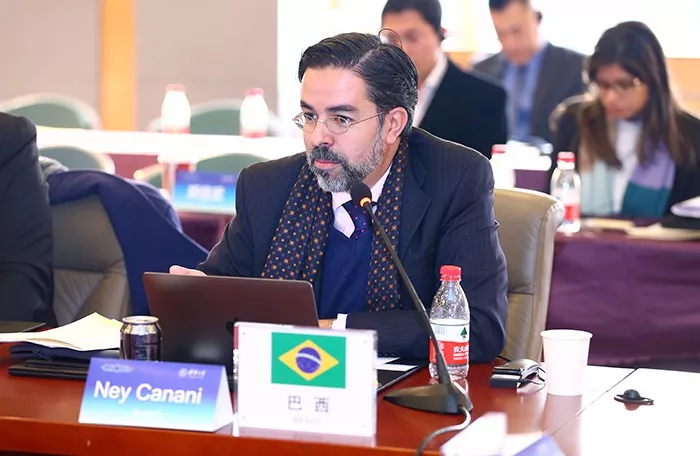
Mr. Ney Canani, the Chief International Advisor of Brazil’s Ministry of Labor, said that there are 8.5 million small enterprises in Brazil, making up 99% of the total and contributing to 52% of employment. Therefore, promoting social security for SMEs means social security for more people. Since 2011, the Brazilian government has implemented a series of policies on social security for SMEs, micro-entrepreneurs and low-income employees and granted more labor rights through the revision of the Labor Law. These social security policies have shown notable effect on promoting the public entrepreneurship and enhancing the steady economic development.
The Roundtable wrapped up with the speech by Professor Gao Jian, Director of the Entrepreneurship Research Centre on G20 Economies. At the beginning of the speech, he affirmed the active role of the Roundtable in facilitating the implementation of the G20 Entrepreneurship Action Plan and promoting exchanges of entrepreneurial work experience. Participants reached a consensus on the importance of participation by different social forces. Professor Gao emphasized that the roundtable marks only a beginning. The G20 Entrepreneurship Action Plan and entrepreneurship development require continuous attention and discussions from all walks of life. The Entrepreneurship Research Centre on G20 Economies will continue to step up its efforts to promote the establishment of an effective coordination mechanism and form a normalized long-term cooperation mechanism with member countries and international organizations in a bid to jointly facilitate entrepreneurship.
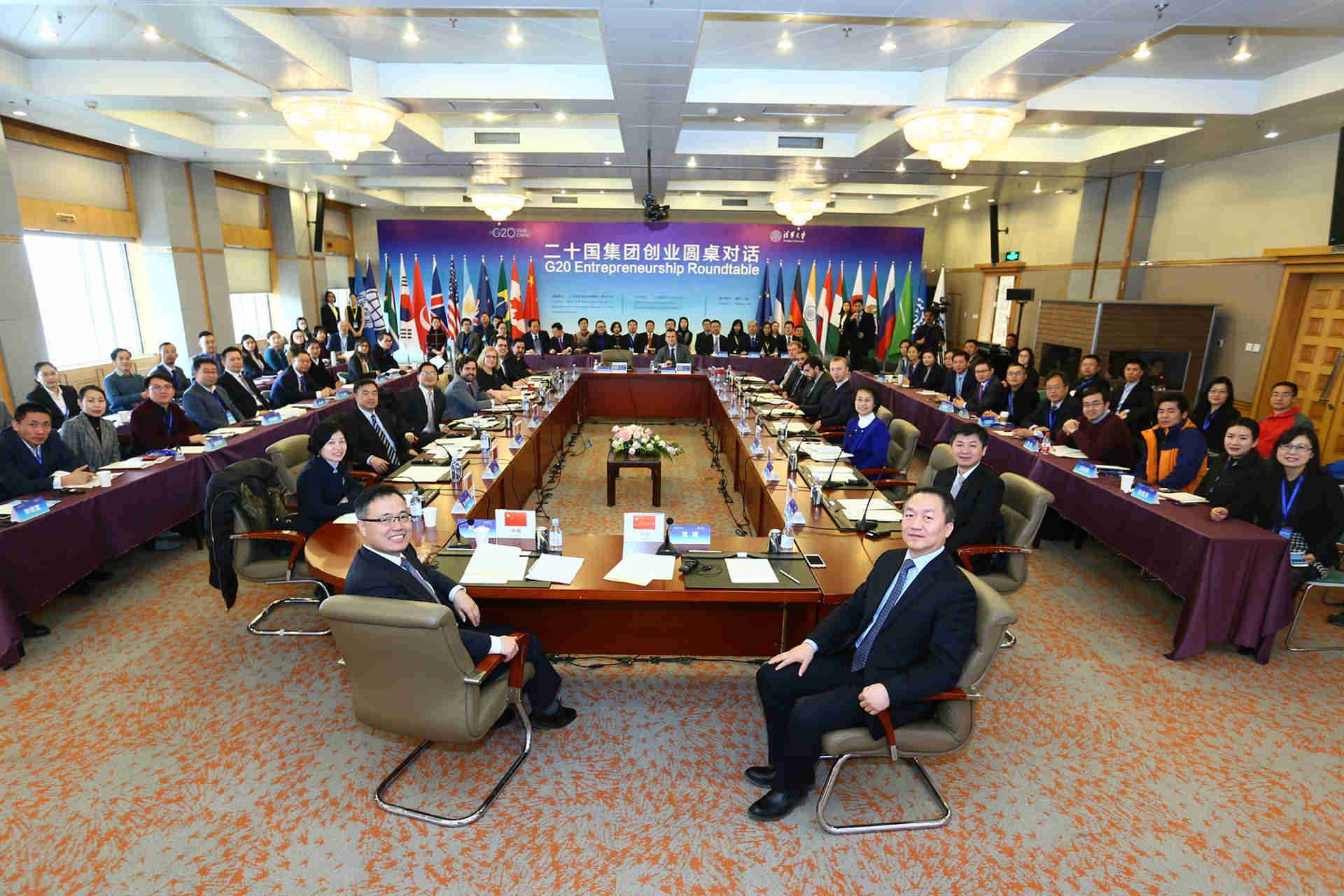
The G20 Entrepreneurship Roundtable is a major event organized by the Entrepreneurship Research Centre on G20 Economies, an actual move made by China to honor its commitments, as well as an important measure to facilitate the joint implementation of the G20 Entrepreneurship Action Plan by G20 members. The Entrepreneurship Roundtable aims to promote long-term exchanges among G20 members and international organizations. The first Entrepreneurship Roundtable has concluded successfully and the subsequent series of forum activities will continue so as to further advance the establishment of normalized cooperation mechanism, the entrepreneurship research and the implementation of the G20 Entrepreneurship Action Plan.